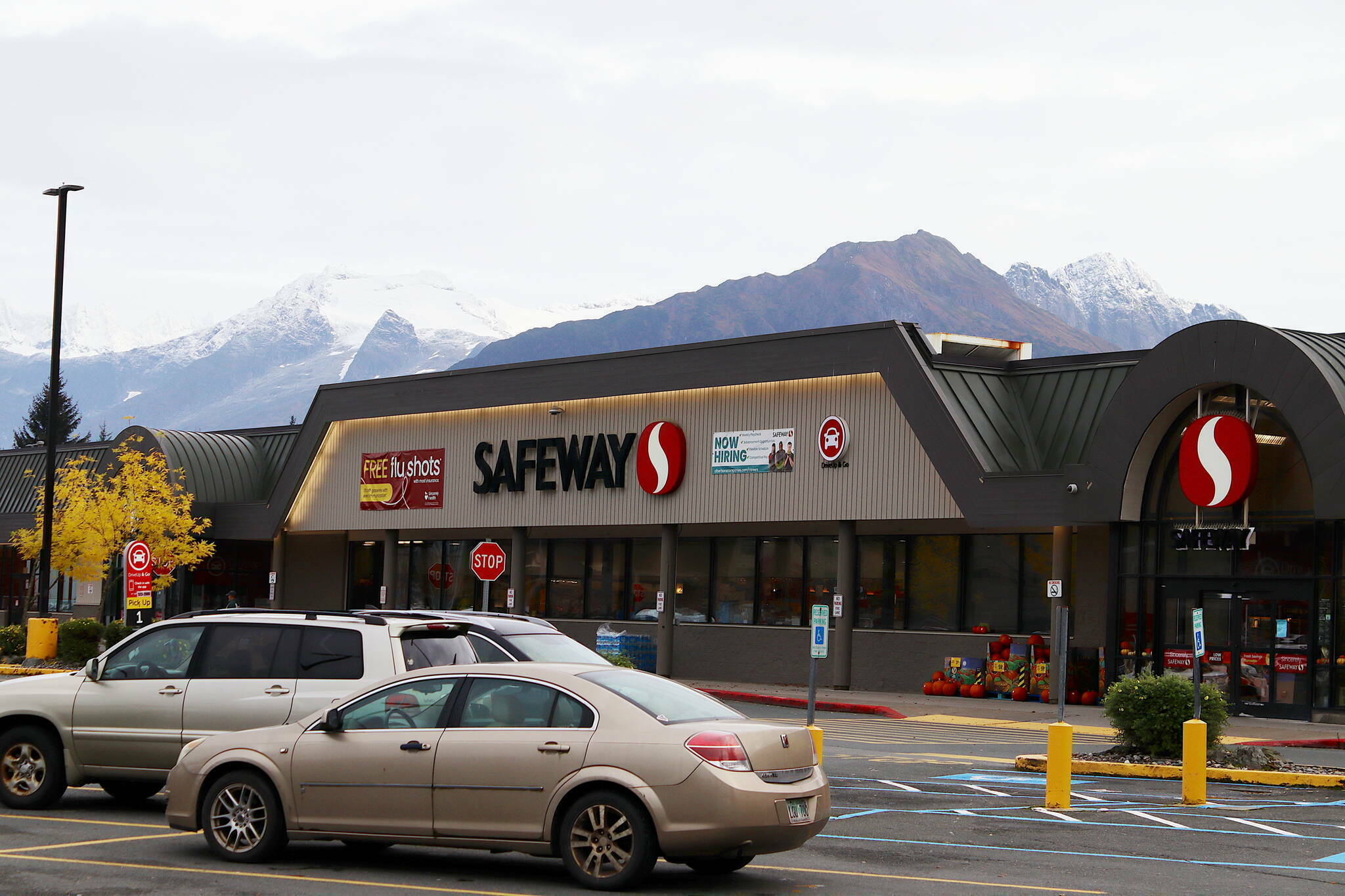The grocery chain Albertsons said Wednesday that it had backed out of its $25 billion merger with Kroger and sued its rival for failing to adequately push for regulatory approval, after both a federal and state judge blocked the deal Tuesday.
The merger would have directly affected Juneau since it is home to one of the 579 Safeway stores (owned by Albertsons) that would be have been sold to another company, with the Fred Meyer store (owned by Kroger) remaining part of the merged company. Numerous political leaders in the state expressed concerns the merger would lead to higher prices, supply chain struggles and other difficulties in Alaska, especially in smaller and more remote communities.
The deal, which would have been the biggest grocery store merger in U.S. history, faced three separate legal challenges — one filed by the Federal Trade Commission — over concerns that the combined company would reduce competition and raise prices. Judge Adrienne Nelson of U.S. District Court for the District of Oregon temporarily halted the deal Tuesday, siding with federal regulators who have argued that the merger would lessen competition at the expense of consumers and workers.
Another decision blocking the merger in Washington state court, issued by Judge Marshall Ferguson just one hour later, added to the hurdles facing the companies.
“Given the recent federal and state court decisions to block our proposed merger with Kroger, we have made the difficult decision to terminate the merger agreement,” Vivek Sankaran, CEO of Albertsons, said in a statement. “We are deeply disappointed in the courts’ decisions.”
On Wednesday, Albertsons also said it filed a lawsuit against Kroger in the Delaware Court of Chancery, seeking billions of dollars in damages and accusing Kroger of failing to exercise “best efforts” to secure regulatory approval. Kroger refused to divest assets necessary for antitrust approval, ignored regulators’ feedback and rejected strong buyers of stores it had planned to divest, Albertsons said in a statement announcing the lawsuit.
Erin Rolfes, a spokesperson for Kroger, disputed Albertsons’s claims, calling them “without merit.” Albertsons breached the merger agreement multiple times, she said in a statement, and the company filed the lawsuit in an attempt to deflect responsibility and seek payment for the merger’s termination fee.
“Kroger looks forward to responding to these baseless claims in court,” Rolfes said. “We went to extraordinary lengths to uphold the merger agreement throughout the entirety of the regulatory process and the facts will make that abundantly clear.”
The supermarket chains spent hundreds of millions of dollars over the past two years on the deal that would have created a $200 billion company with 5,000 supermarkets across the country. The companies argued that the merger was necessary to compete with giants like Walmart and Amazon and would lead to lower prices for shoppers.
But consolidating Kroger and Albertsons would reduce head-to-head competition in over 1,000 communities, resulting in higher prices and lower quality, the FTC argued in its post-hearing brief. The agency also contended that the deal would erode the bargaining power of unions and harm the combined companies’ roughly 700,000 employees.
The two chains have significant overlap in some markets, including Los Angeles, Seattle and Chicago. Kroger had taken steps to try to allay regulators’ concerns about market concentration in such areas. The company had said it would sell 579 Kroger and Albertsons stores to a third company, called C&S Wholesale Grocers, though regulators were skeptical that the store sales would resolve competition concerns.
The federal court decision in Oregon was a final success for Lina Khan, the outgoing head of the FTC, who has pushed to scale back the power of some of the country’s biggest corporations. On Tuesday, President-elect Donald Trump named Andrew Ferguson, a Republican who sits on the commission, to replace her as its head.
Shares of Albertsons rose about 1% in early morning trading, while Kroger’s stock ticked up roughly 1.5%.
• This article originally appeared in The New York Times. It has been updated by Juneau Empire staff to include the potential impacts of the merger in Alaska.

